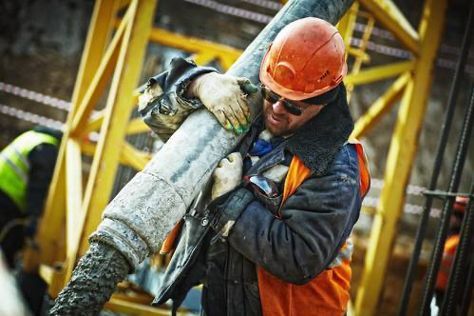Injured At Work Then Fired? Here’s What You Need To Do

In California, the law expects every employer to make sure they are providing a safe workplace at all times; unfortunately, this doesn’t always mean people never get injured on the job. Regardless if you work construction, in a warehouse, or at a desk, you as an employee have the right to your safety and well-being.
Just imagine, what would happen if you got injured at work and it resulted in you getting fired?
To protect employees in hazardous working conditions, compensation laws are designed with this in mind and works to ensure that employees are financially protected. These are also the laws that prevent employers from retaliating against any employee who chooses to file a worker’s compensation claim.
If you have been unfortunate and have suffered the ultimate insult of being injured and then fired, you must educate yourself with your fundamental rights as a worker.
Let’s have a look at some of the crucial things you need to know in the event of a lay-off from work following a workplace injury.
Related: What Should I Do After I’m Hurt At Work?
WORKER’S COMPENSATION COVERS INJURIES SUSTAINED THROUGHOUT THE WHOLE OF YOUR EMPLOYMENT
If you work at a desk every day and experience chronic back pain because of a poorly built chair, or you trip and hit your head because of wires that aren’t safely secured, you may be able to claim workers’ compensation.
If you work the majority of your working day on a construction site, and you get hurt because another worker mishandled heavy machinery, or you are hit by falling debris on-site, then you will be eligible for workers comp.
Workers’ compensation will reimburse you for any missed work because of the injury and cover any medical expenses that you have incurred.
Regardless of whether you have a white-collar or blue-collar job, if you experienced an extreme or sudden injury or a gradual one across years such as exposure to asbestos, you still have the right to make a claim.
If you are a full employee (not as a freelancer or independent contractor) and experience an injury in the workplace, you are entitled to this compensation. You also have the right not to be mistreated or fired because you have asserted this right.

IT DOESN’T MATTER WHO WAS AT FAULT
Worker’s compensation is no-fault, meaning you are covered regardless of who was at fault for the injury. It’s known as no-fault compensation/insurance.
Your employer may try to persuade you that you became injured because of something that you did wrong. Whether they claim you weren’t looking where you were going, you looked away when you should have been concentrating, so sustained your injury because of this. It’s doesn’t mean that you aren’t entitled to claim compensation, nor does it mean you will get fired.
Although, if you did act with gross negligence, you may be disqualified and not eligible to claim. For example, if you were under the influence of drugs or alcohol while working and you then got hurt, it could jeopardize your situation.
However, you also need to be aware that employers’ insurance may rise when there are worker comp claims ongoing or completed. You may also find that these claims also invite unwanted attention from regulators who may want to enforce safer working environments.
Even if the way you acted could have contributed to you getting injured while at work, you shouldn’t be fired because you have claimed workmen’s compensation.

FILING A CLAIM IS A PROTECTED ACTIVITY
Every state has its laws that categorize the filling of a worker’s compensation claim as a protected activity. If you, as an employee, decide to make a claim, your employer can’t retaliate against you for filing a claim by firing you.
Since there are differing rules for California, it is best to find a local attorney such as Invictus Law specializing in workers’ compensation.
It would also help if you were seen acting ‘in good faith‘ while on the job. If you are not honest about your injury or claim, you will not be protected.
Still in the dark on whether your claim is legitimate? Contact us at Invictus Law to learn more about how you can receive workers’ compensation.
IT’S IMPORTANT TO SPEAK TO YOUR
ATTORNEY
It would be best if you always spoke to your attorney, such as Invictus Law. If you lose your job because of an injury, you must contact an attorney. Look for a reputable law firm that has extensive experience in personal injury and workers’ comp cases.
Your attorney will be able to help you through the whole process of filing the claim. They may also be able to contribute with any other possible claims you may have.
You don’t usually see large settlements, which could be a problem if you have a different ability level because of your injury and can no longer provide for your family.
However, you may also be able to make a personal injury claim if you were hurt because of the toxic substances of a defective product. Your attorney will be able to direct you.
Related: How to Choose a Workers’ Compensation Attorney
YOU MAY BE ELIGIBLE FOR MULTIPLE PROTECTIONS
While your first recourse when you are injured is Workers’ Compensation, you may be eligible for other forms of protection upon returning to work. For instance, if your injury limits your ability, you may be protected under the Americans with Disabilities Act (ADA). This means that your employer would be required to accommodate your injury upon your return to work.
Accommodations can mean many different things. It may include supplying different equipment to enable you to continue your work. It may include placing you on light duty until you’ve recovered. It may even mean restructuring the job entirely in order to make it possible for you to complete work. If you find yourself disabled from a workplace injury and have returned to work with restrictions, it’s a good idea to request accommodations directly and ideally in writing so that the employer cannot claim ignorance of the need for accommodation. It is illegal for an employer to fire someone for requesting accommodation.
In addition to protections under the ADA, you may be eligible for additional protections under the Family Medical Leave Act (FMLA). Employers with at least 50 employees are required to provide up to 12 weeks of unpaid leave in the case of a serious medical condition. Complying with this law combines with other forms of protection including Workers’ Compensation and the ADA.

GATHER AS MUCH EVIDENCE AS POSSIBLE
If this ever happens to you, you need to make sure you collect all the available evidence about your former workplace and your injury.
You will also need your medical records from your doctor, including those before your injury or illness. Collecting these records allows you to show what you were like before compared to what you are like now.
If you have any videos or photographs of the workplace and, even better, the incident itself, these are always helpful.
It would also be helpful to find evidence that the firing was a result of your claim. Perhaps you have emails, voicemails, or texts from your manager that show their intent.
Your co-workers may also be helpful. If they can testify that they fired you because of your claim from overhearing conversations or witnessed that it has happened to more than one employee, they may be able to testify.
Related: How Surveillance Impacts a Workers’ Compensation Claim
LEGAL CAUSE FOR DISMISSAL
While filing for workers’ compensation is a protected activity, there are some cases where your employer can legally dismiss you from duty, even after an injury. That is why it is so important to gather as much evidence as possible. While you can bring a lawsuit against a former employer for firing you due to a workplace injury, many other causes are perfectly legitimate.
For instance, if your role is critical to the degree that the business cannot operate without it being filled, your employer may fill the position before you are able to return to work. In some cases it may be impossible to accommodate your injury within the organization. Unfortunately, under at-will employment, this can mean that under certain circumstances your injury may result in the employer’s inability to keep you on.
It also may be possible, depending on the injury, that the expense of retrofitting work spaces to accommodate you may represent an unfair burden on your employer. In these cases, the employer may refuse to make the changes in order to bring you back to work. Under these circumstances, you may find yourself out of a job. Finally, it’s possible for an employer to fire you for poor job performance whether you’re injured or not.
Note that some or all of these conditions may be contestable in court, but that in most states there are circumstances where you might be fired even in the case of an injury. That’s why it’s important to gather as much evidence as possible and get an employment lawyer involved when you’re facing these difficult circumstances. The lawyer can help you sort through the challenges you’re facing, particularly in cases where the employer claims they have justification for your dismissal.
IN CONCLUSION
If you become injured at work, you need to know your rights. It’s already bad enough to get fired from a job that you rely on to pay the bills, let alone be fired from one after you have been injured and made a compensation claim.
Remember, you have the right to claim back lost pay and be reimbursed for medical expenses that you incurred because of the injury that happened on the job. You have the power to assert those rights.
Speaking with an experienced lawyer like Invictus Law who understands employment law, personal injury law, and governing workplace injuries, you will be able to gather a realistic picture of exactly where you stand. They should be able to assist you with your claim and achieve a solution.
Ready to start looking for a workers’ comp attorney? Visit us at Invictus Law to learn more about what we do for workers’ compensation.
